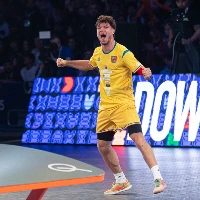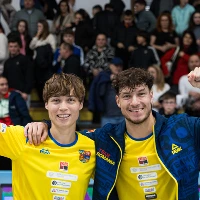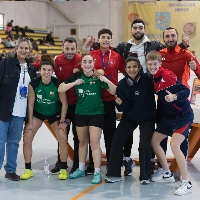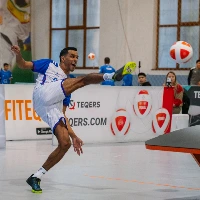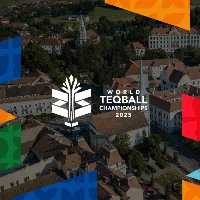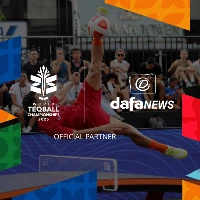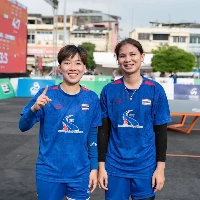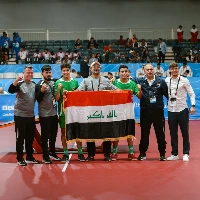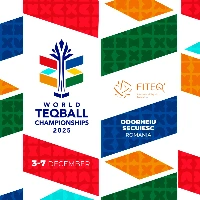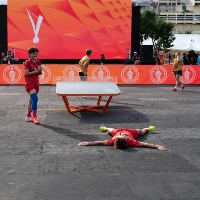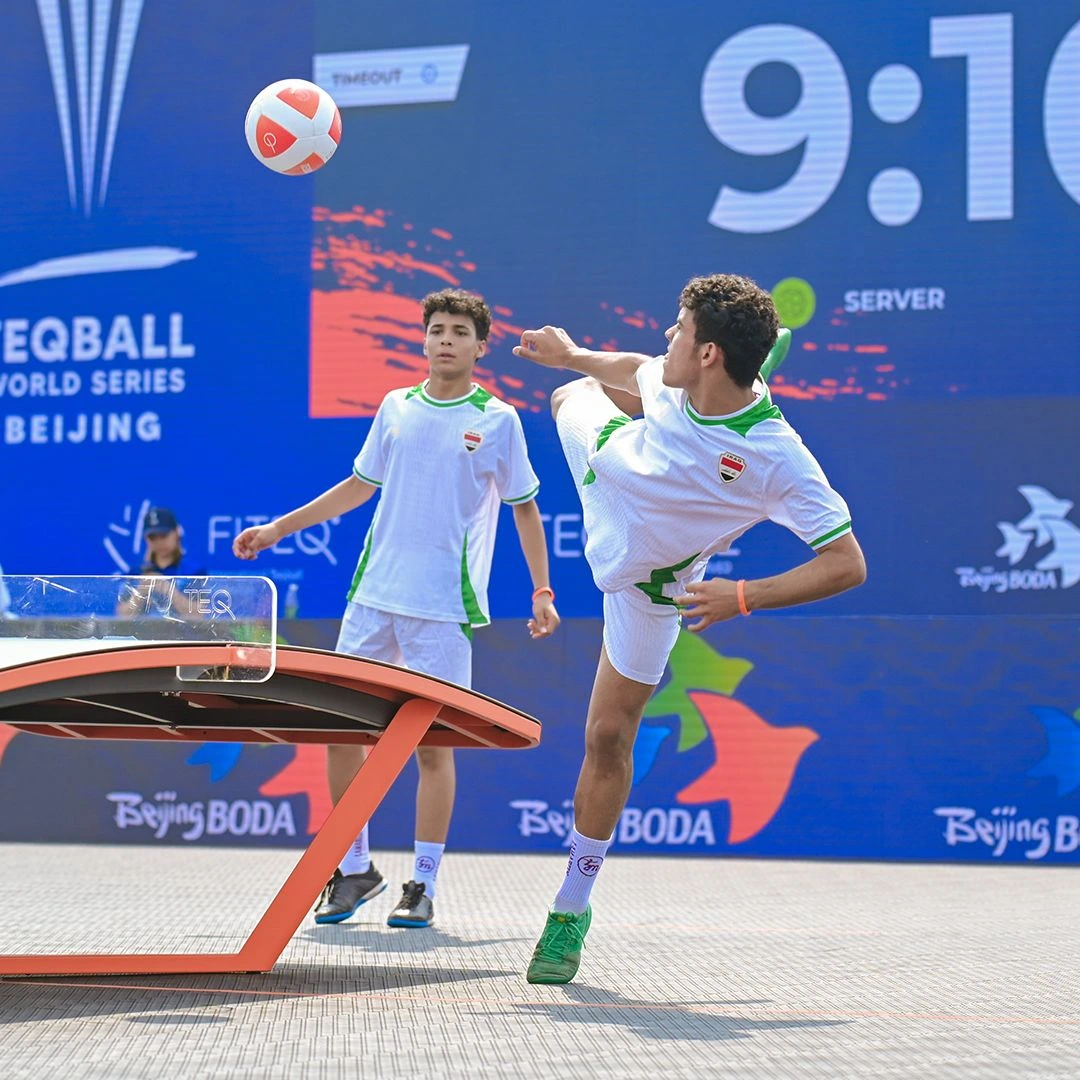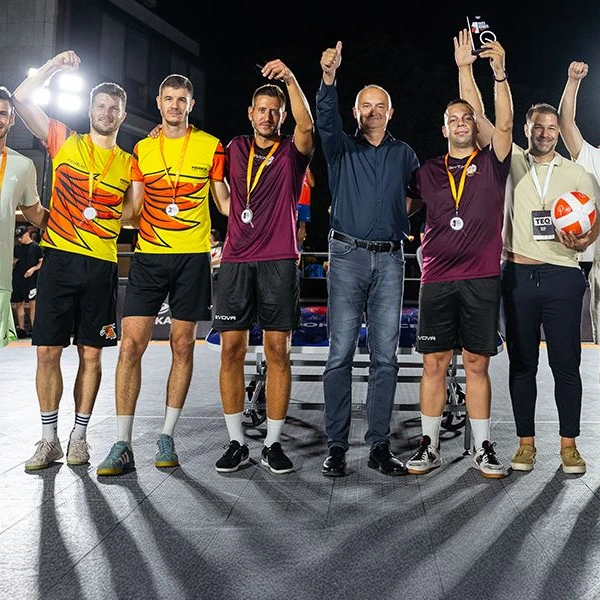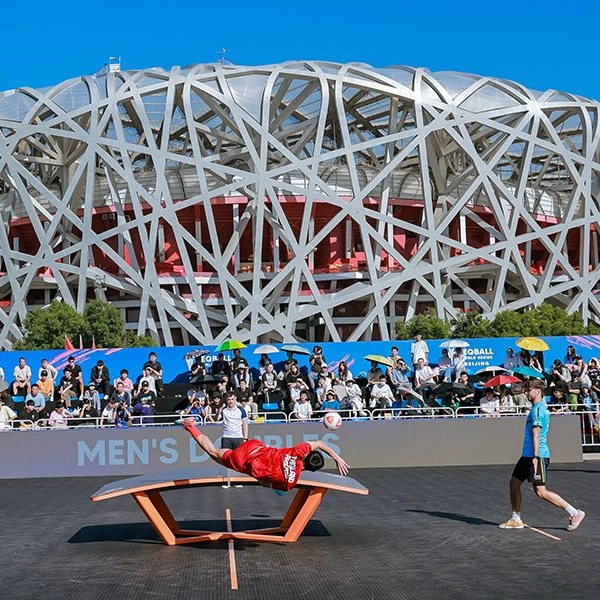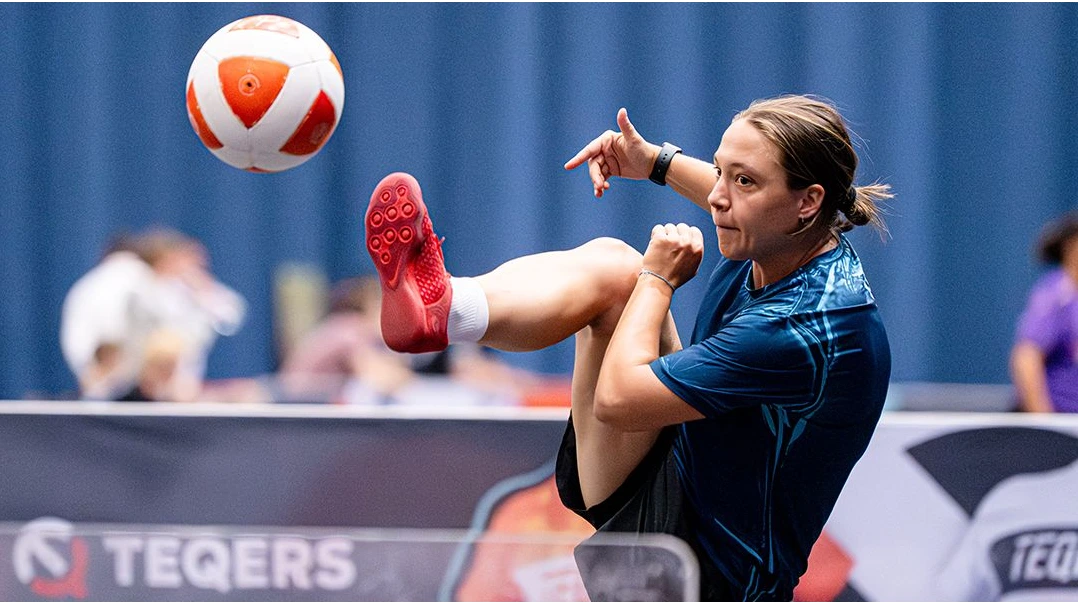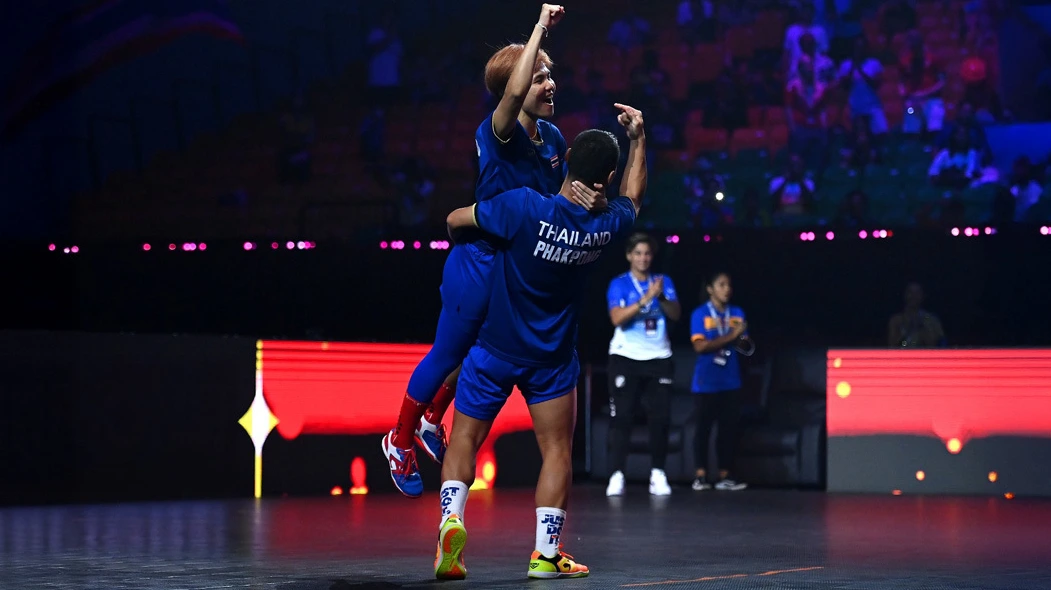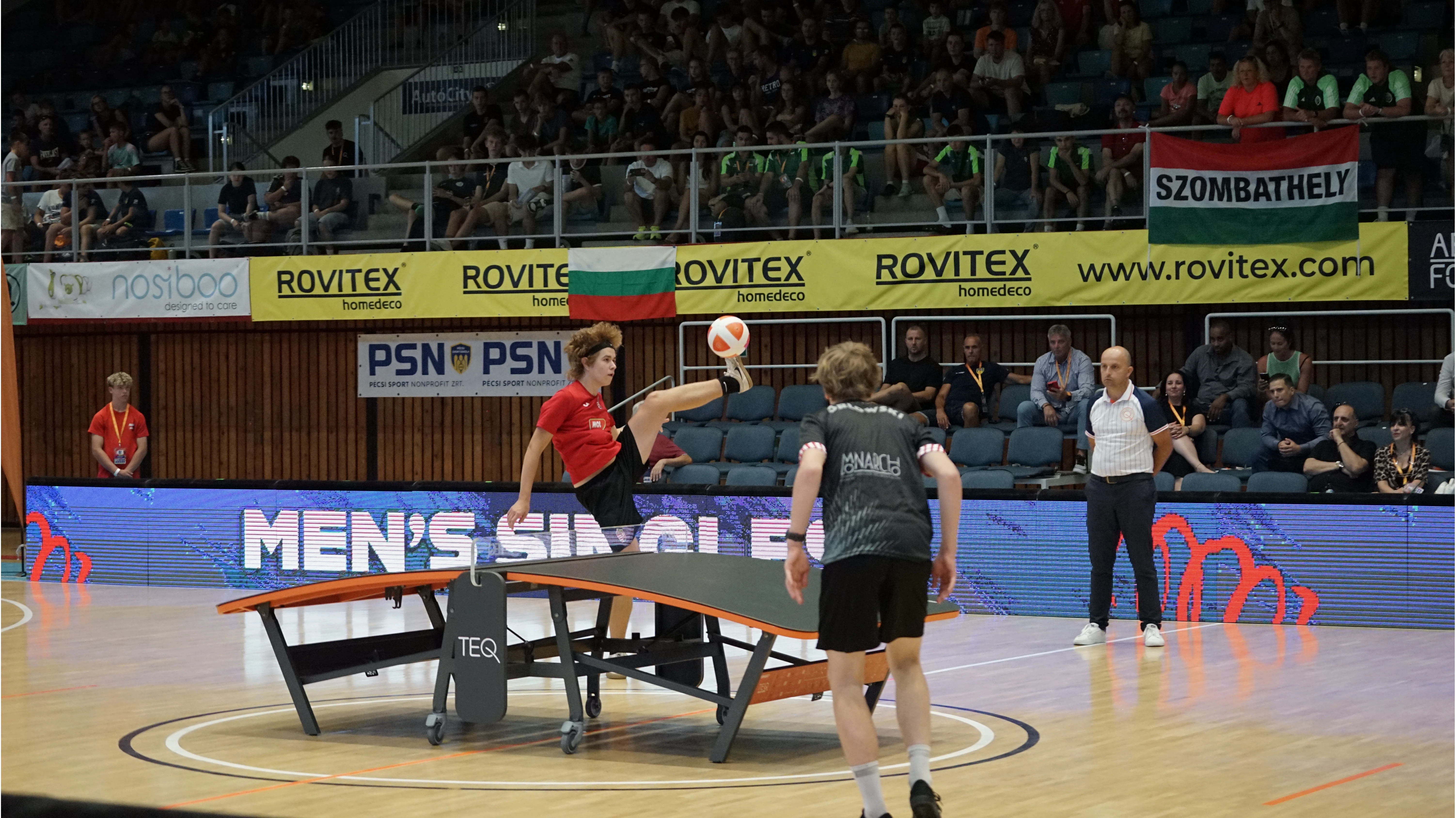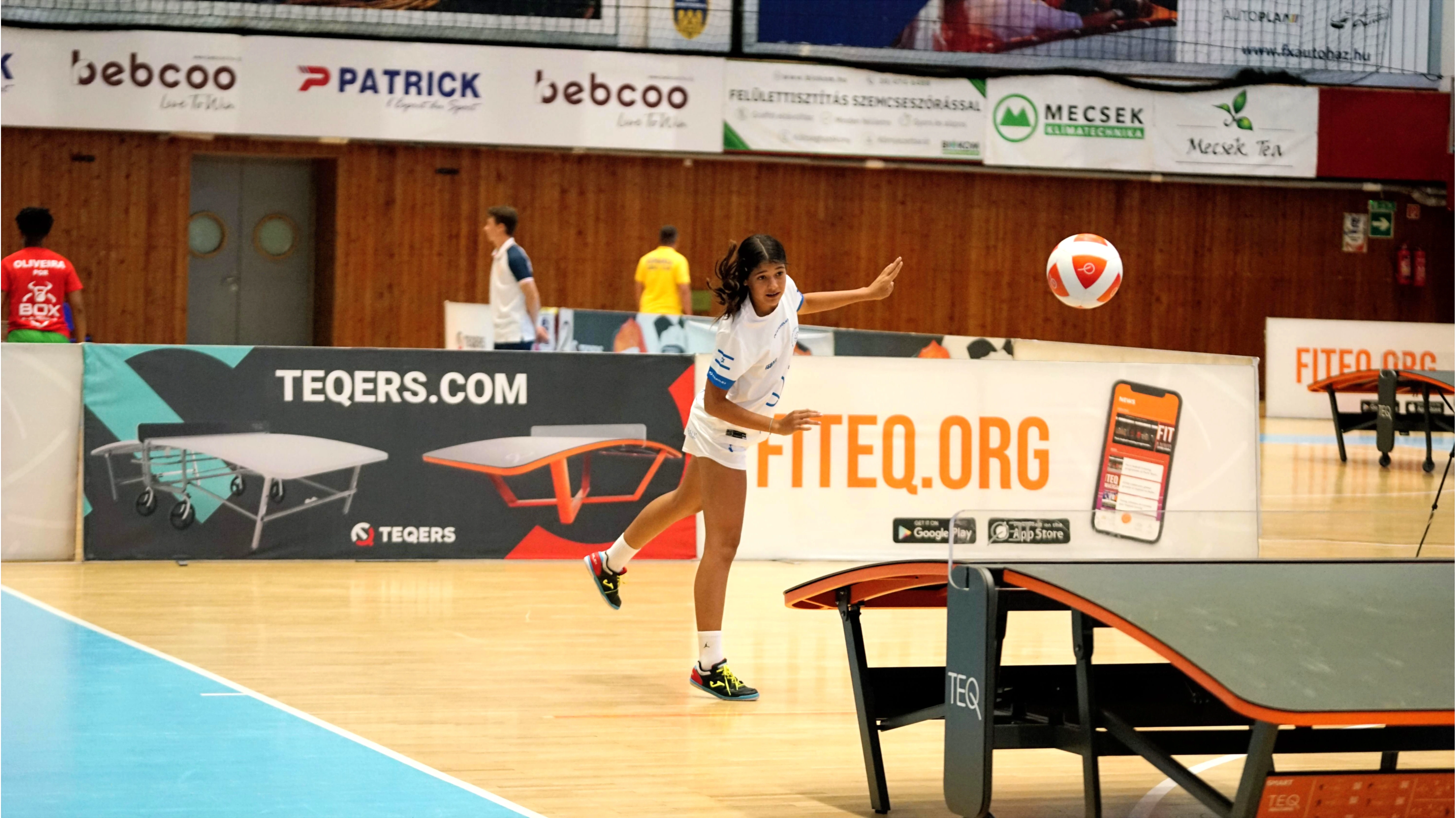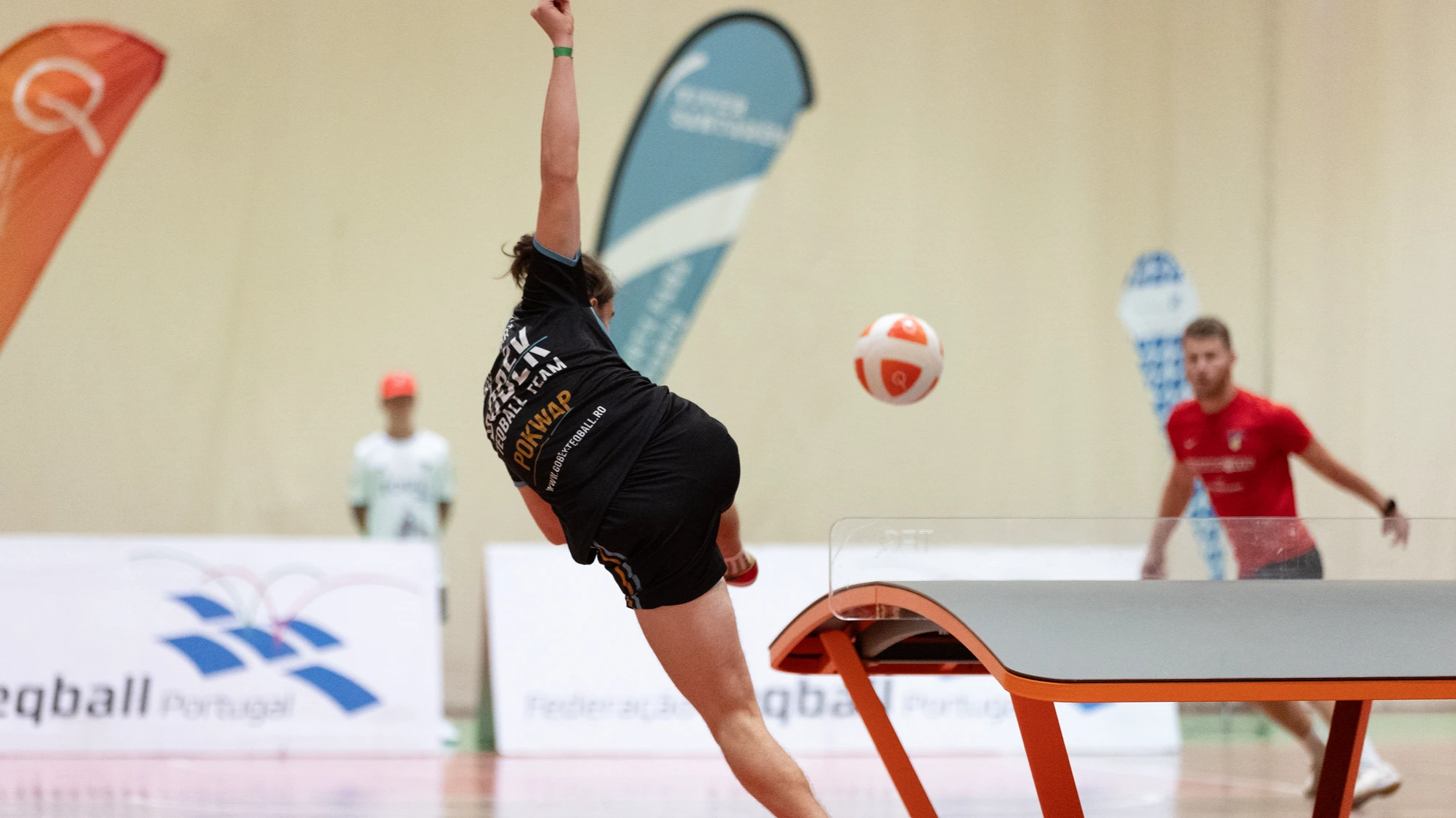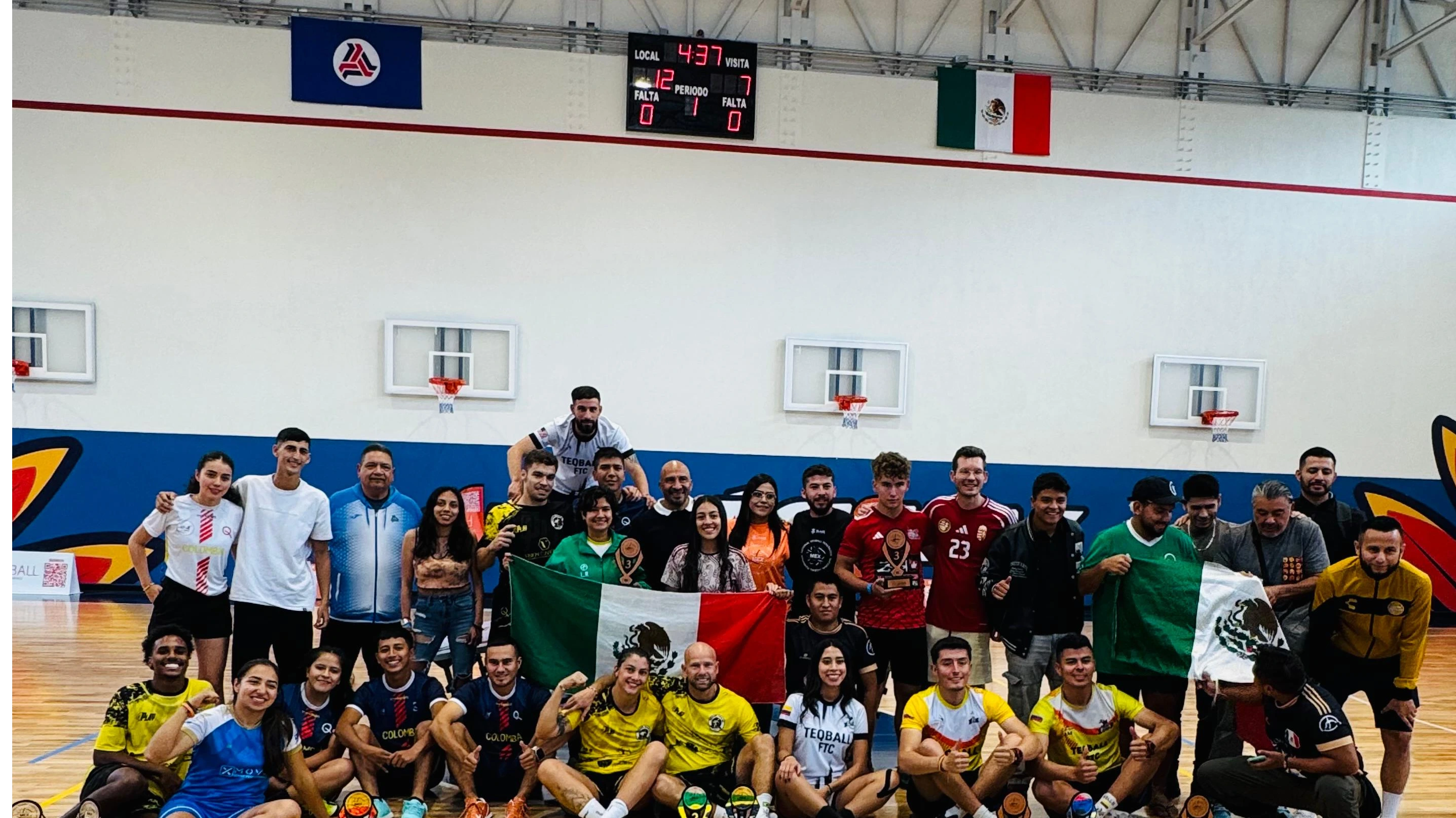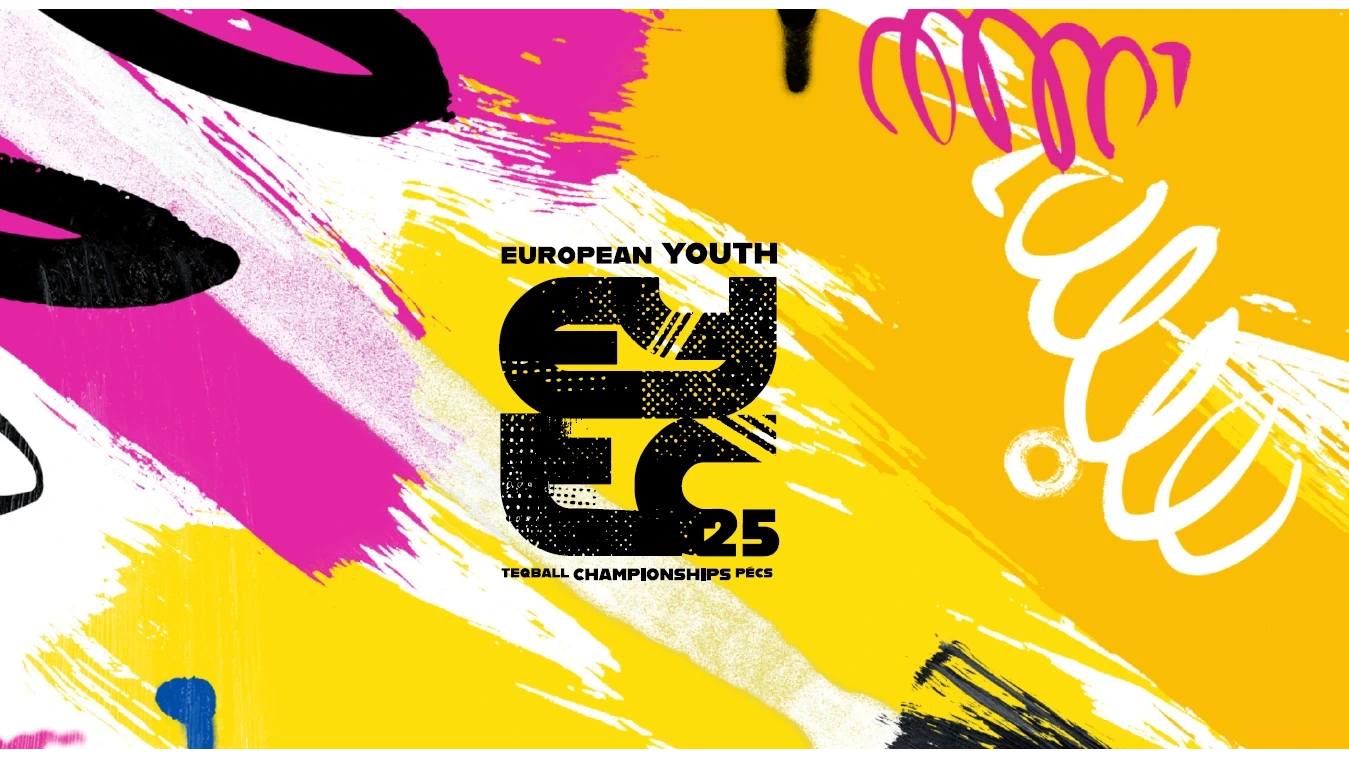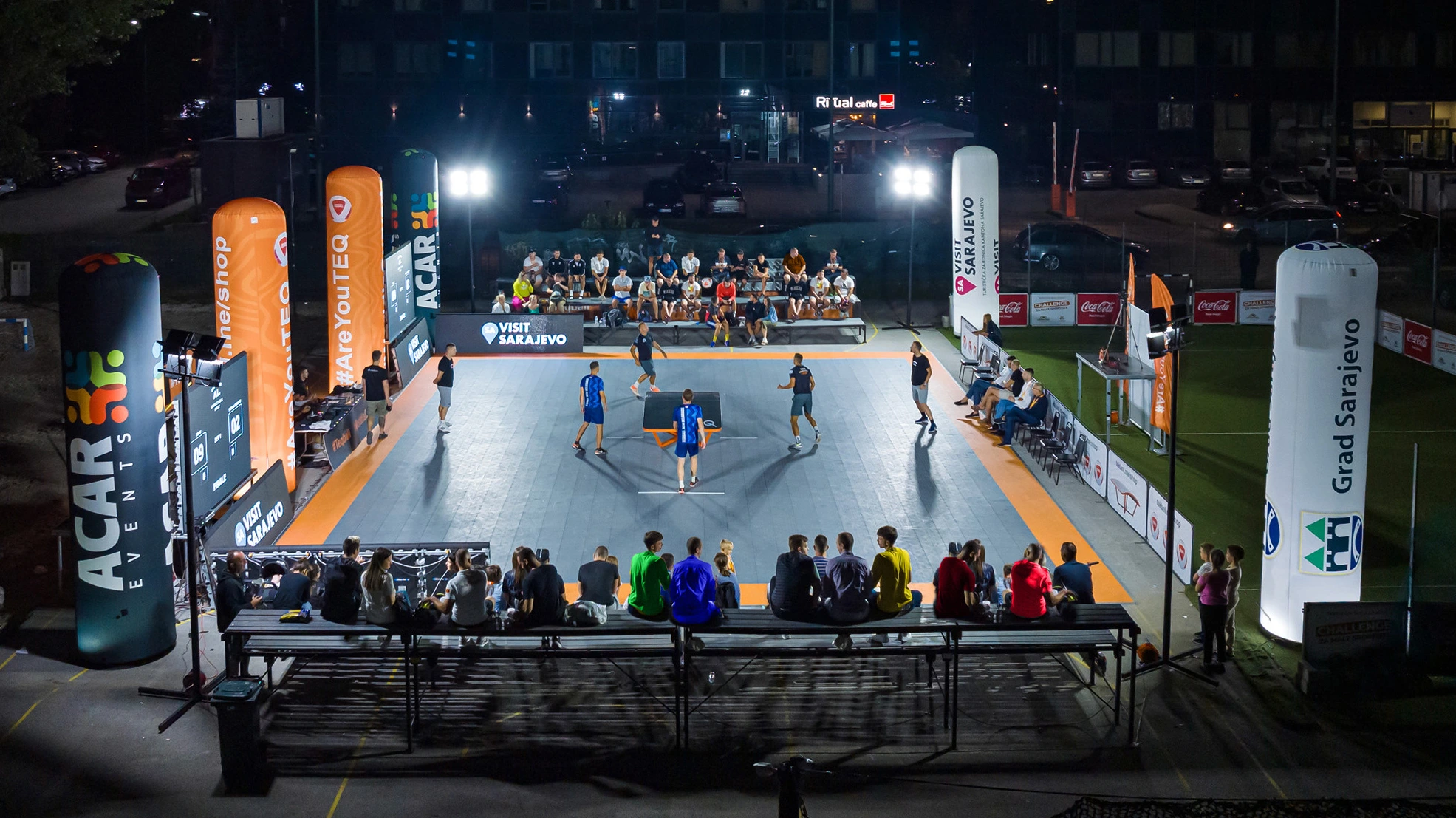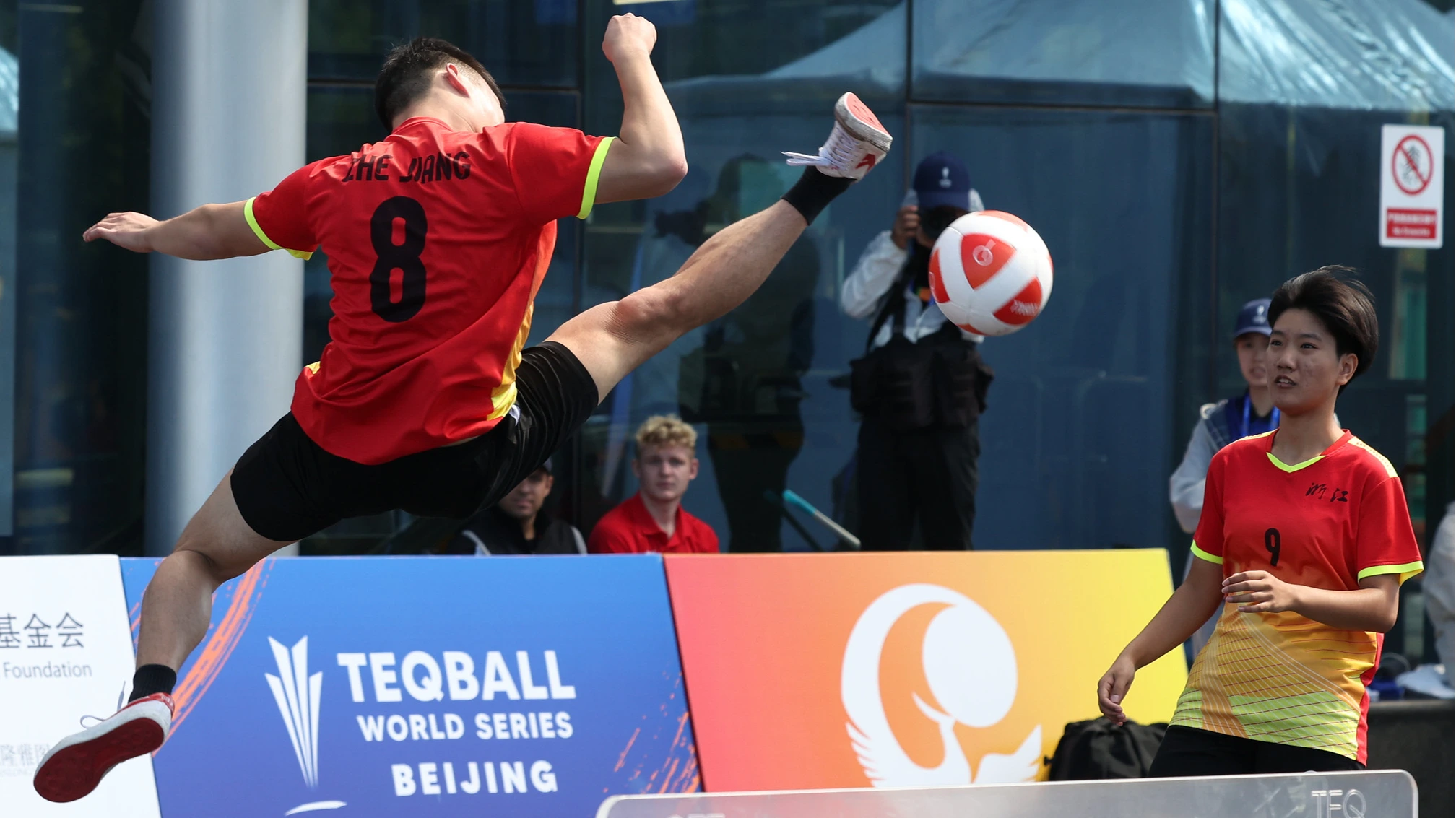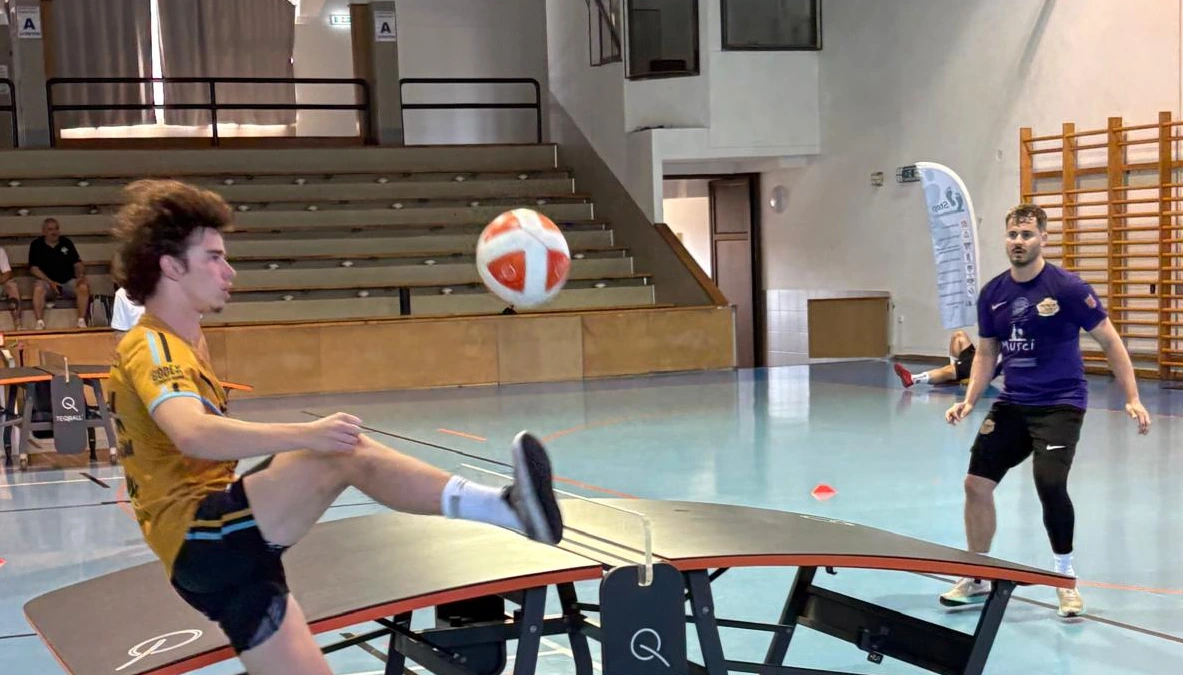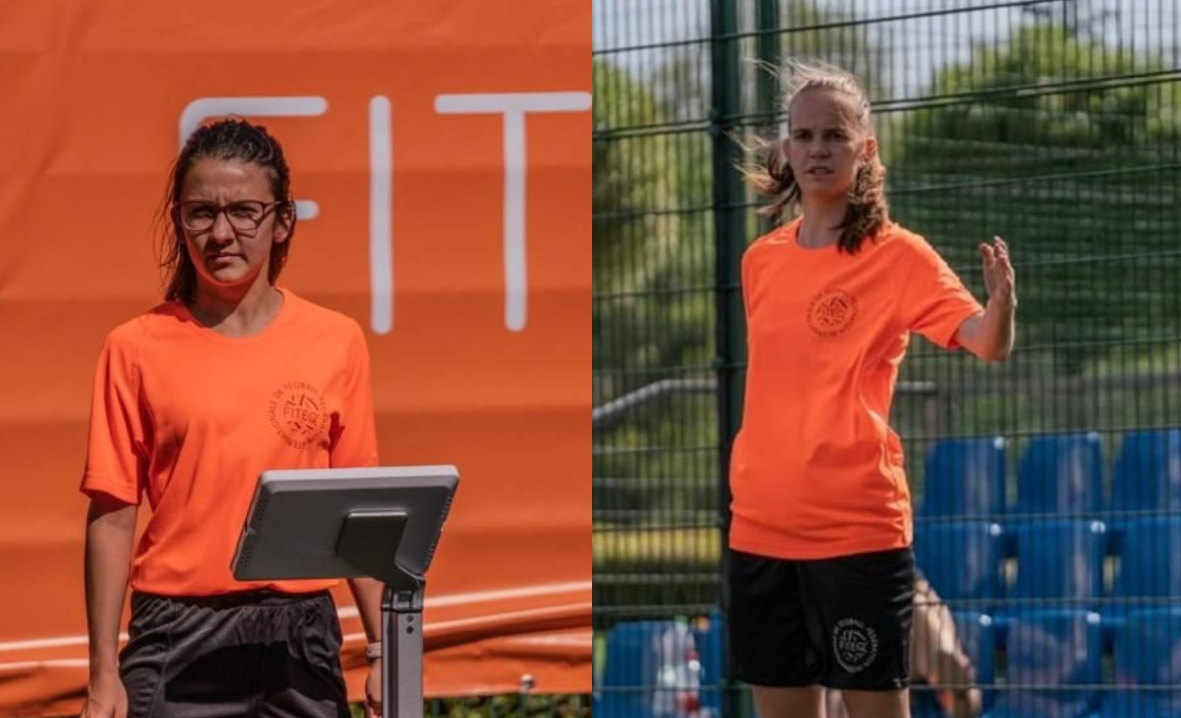
Interview: Eniko Biro & Boglarka Feleki (Romania)
INSIDE TEQBALL- STORIES FROM THE TEQBALL WORLD -
Enikő Biró and Boglárka Feleki were a key part of the 2019 Teqball World Championships, not only as referees but as an inspiration to women all around the world. The two Romanian teqball referees with Hungarian origins, have a background in officiating in football and continue to referee at a high-level to this day. In this interview, they share how they became successful referees and explain how the introduction of teqball has changed their lives.
When did you first experience teqball?
Enikő: I’ve always been interested in the sporting life in my hometown, and I also played football, so I often went to watch football matches, whether inside or outside. This sport was brought to Székelyudvarhely by my acquaintances, Koffi Gábor and Ilyés Szabolcs, and I saw them presenting how it is works at the halftime of a futsal match. After that I enquired about it and soon after we had a chance to try it. That was three to four years ago.
Bogi: The first time I met with teqball was at a sports event in Székelyudvarhely, three years ago. The Góbék Teqball team had a table and I tried the new sport.
You come from the world of football as you are officiating games there. When and why did you choose refereeing?
Enikő: I started playing football at the age of 11 and I was completely captivated by this sport. Before that, I tried several types of dance and also played handball, but somehow football was more enchanting for me. Thanks to my maximalist personality, I wanted to get the most out of myself through football. So, when I was 16, I joined a football referee course and later a football coaching course as well. I practiced all three for a while, but in the refereeing, I felt I could be fulfilled. Then I had to make a decision anyway, because my focus was starting to fall apart. I knew that if I think big, these things don’t fit together and so I easily made the decision to stay with refereeing.
Bogi: I grew up next to boys, my brother, my neighbours always played football, so I had to play too. I was 13 when I became interested in this sport. Since then, football has been on my mind. I became a referee with Enikő, and we did coaching courses together as well, so it was obvious that we would discover the world of teqball together too!
You officiate in men’s leagues as well, how does it feel being a female referee controlling the game?
Enikő: Challenges have always been appealing, and that’s probably why I chose refereeing. As an inexperienced girl, my decisions were hard to accept to them, but it only gave me an extra incentive to learn and develop. Now, I have managed to gain the respect of the players, which is always a confirmation that I did well. If I continue to improve, the development would be felt not only by myself but also by the players.
Bogi: I like to control and therefore I have no problem with it!
Enikő, how do you feel yourself when officiating teqball matches as a female referee?
Enikő: When I played football, I could never pay full attention to the game until the end of the match, my attention always wandered. With 11 teammates on the field we think that one of them could allow a little relaxation, but it’s not true. Yet, I really experienced and learned this as a referee. Officiating could give me the opportunity to be focused until the end of the match and while I am on the field everything else disappears around me. I feel similarly in teqball, although there is less physical movement as a referee than in football, but the game is faster and there is more chance of error in certain situations, so it requires constant active mental concentration.
Bogi, being the only two women referees of the squad during the last teqball World Championships, how did you feel?
Bogi: The 2019 Teqball World Championships was very interesting. I was glad and happy I got this opportunity. It was a high-quality event for me, and I also tried to participate in a high-quality way.
FITEQ puts a strong emphasis on involving women and on teqball being a gender equitable sport. As one of the first female teqball referees, what career opportunities do you see in the future?
Enikő: Teqball is growing and evolving wonderfully. I would like to follow this process, not just as an observer, but as a participant. As teqball develops, I want to develop in the sport as a referee. Being among the first, I feel a great responsibility to be an example for those who join later. As the sport continues to grow, I don’t really see limits!
Bogi: It is good to see that women have equal opportunities in this sport. I have plans with teqball in the future. I want to improve my teqball career, but at the same time family is also very important to me.
Would you recommend joining the teqball family to other women?
Enikő: Of course, especially for all women who love football and love to challenge themselves in new areas. But also, for both those who have not yet played football. With the help of teqball, you can have fun while developing your technique, and a good atmosphere around the table is also guaranteed.
Bogi: Yes, I strongly recommend. I have a girl’s football team in Székelyudvarhely and I want to promote it to the team.
Thank you for the interview and good luck with all your endeavours with teqball!
